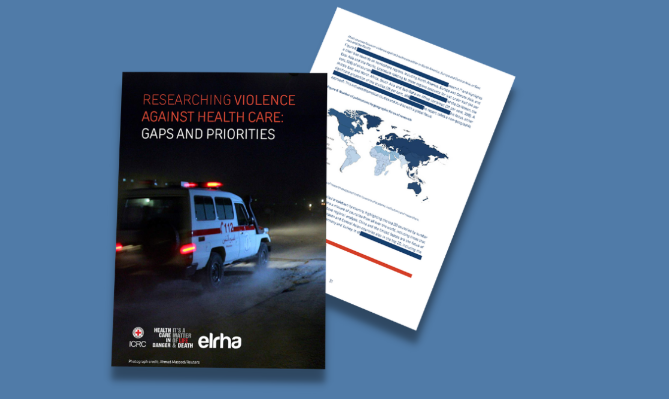Researching violence Against Health Care at ICRC

Background
It will not be possible to devise the right strategies to protect health care from violence, or to promote the use of these strategies on the proper scale, without the necessary evidence base.
Local research partnerships – Health-care providers form part of the intellectual elites of their countries, and medicine and public health are evidence-based disciplines. This is particularly propitious for generating – together with the communities affected – high quality evidence on patterns of violence and the cost to health-care provision and the health of populations. The ICRC, with its global network of delegations – and its presence in countries affected by conflict and other emergencies – is uniquely well placed to initiate partnerships with health-care researchers based in countries affected by conflict and other violence.
This is why the ICRC’s approach to generating evidence on violence against health care, and on the effectiveness of activities to prevent it, will focus on partnering public-health institutes and other relevant research bodies embedded within the health systems of countries affected by conflict and other emergencies. Research conducted locally in this way will not only enable local prevention strategies to be based on a nuanced understanding of patterns of violence, but will, in time, also contribute to creating a global overview of trends. It will help us to make violence against health care – so often, invisible and normalized – visible.

Influencing the global research agenda:
The ICRC will also continue to influence the global research agenda for protecting health care from violence. It will do so by forming strategic partnerships with research bodies of global reach in order to mobilize funding and expertise in line with its objective of generating research geared towards concrete and localized solutions.
Discover more on our research activities and joint projects:
Researching violence Against Health Care: GAPS & PRIORITIES
Madrid Round Table on DATA COLLECTION
Violence against healthcare an facility damage in Bangladesh
How can cities best prepare for emergencies?
events is an important consideration for urban health authorities.
This pilot of a new tool may enable city leaders to improve emergency response plans